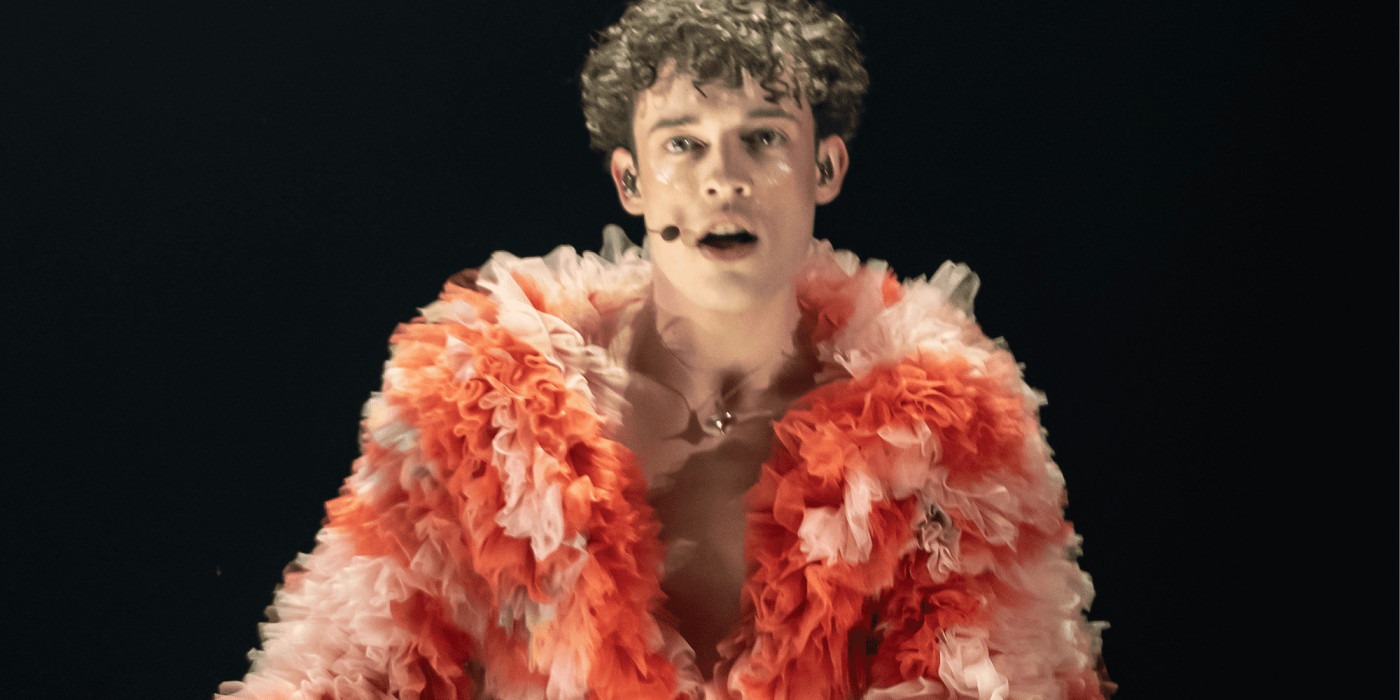Fierce fingertips: the manicured manifestations of Eurovision’s uprising
Worldwide calls for a boycott, the constant loud booing at Israel’s performance in the arena, multiple contestants giving out messages of peace and ceasefire, disqualifying the Netherlands right before the grand finale, Malmö having a huge protest in solidarity with Palestine liberation right outside the arena, leaking of votes, cancelling the Big Five’s (United Kingdom, Germany, France, Spain and Italy) press conference, police escorting out any audience member found with a Palestinian and even the non-binary flag, Eurovision 2024 was anything but drama free and smooth-sailing.
Switzerland took home the trophy for the first time since 1988 when the famous Celine Dion won by just a single point over the UK
The Eurovision Song Contest was held from 8 to 11 May in Malmö, Sweden. The contest largely deems itself non-political, and staying true to this essence of the contest allowed the participation of Israel. The contest was met with worldwide scrutiny over this decision, from broadcasters to Eurovision fans deeply condemning this move and even going as far as to boycott it. The European Broadcasting Union (EBU) remained unfazed despite these heavy repercussions. The outcome was one of the most controversial shows to be ever produced in the contest’s history. Despite all efforts made by the EBU to squash protests and divert attention from their lack of acknowledgement of the ongoing genocide in Palestine, fashion became the strongest sense of dissent and political statement.
On individual expression:
The most controversial grand finale could only provide some closure to the queer fans of Eurovision with Nemo becoming the first-ever non-binary winner of the contest. Switzerland took home the trophy for the first time since 1988 when the famous Celine Dion won by just a single point over the UK. Nemo’s stage attire was a display of their individuality and a way to shatter conventional gender norms around dress codes. They performed while wearing a short, light pink skirt and a jacket with a pink flower appliqué. This was a major change from the rehearsals where Nemo was seen wearing a similar ensemble but made entirely of fur. Reportedly the negative comments about the outfit by fans, and also Nemo’s request to move freely and show more skin, were taken into account and the change was made in the right direction.
Armenia and Croatia had major ethnic and cultural influences all across their costumes. Croatia’s Baby Lasagna, who gave the country their best ever result by winning televote and ending in second place, was donned in a costume designed by Valentina Pliško who took influences from traditional folklore.
Nailing the nails:
While multiple costumes throughout the Eurovision grand finale caught the eye of the general public, the true hero of the show were the nails. Last year’s winner Loreen popularised the trend of Wolverine nails by incorporating them in her performance. But this year, they turned out to be more significant and more powerful.
Ireland’s Bambie Thug was the most vocal pro-Palestine contestant throughout the contest, rising all the way up in the odds. They gave Ireland their first qualification since 2018 and the best result since 1997 by securing a commendable 6th position. With a live outfit change and their goth-like appearance, you would think the clothes did all the talking, but surprisingly enough the statements were hidden elsewhere. For their final performance, Bambie’s nail extensions resembled a key symbol. The Palestinian key symbol is significant to the liberation movement as it stands for the lives and homes lost in Nakba when more than half of the population were either expelled or fled violence without the right to return in the Palestinian expulsion of 1948. Bambie also took it a step further by writing ‘ceasefire’ across their face in ancient Ogham script.
It is the courage of the artists who could finally choose to utilise their platform so well and drive attention toward more important discussions and conversations
Portugal’s Iolanda wasn’t as subtle in the symbolism of support. The singer who secured the 10th spot in the finals was vocal in her message, crying out loud “peace will prevail” at the end of her performance. Iolanda painted her nails in the traditional Keffiyeh print. The Keffiyeh became a symbol of the struggle for a liberated Palestine when the oppressive Israeli regime banned the Palestine flag in the occupied West Bank and Gaza. The support from Iolanda and her ability to voice the silenced left an echo at the arena on Saturday.
For far too long, Eurovision has been a safe space for many including those of underrepresented identities such as mine. Israel’s inclusion in this year’s contest and the subsequent controversy snatched that sense of escape that many might have found in this competition. It is the courage of the artists who could finally choose to utilise their platform so well and drive attention toward more important discussions and conversations. This Eurovision will be remembered as one of turmoil and chaos, but amidst all this chaos, fashion emerged as the most powerful and accessible political symbol to both.

Comments (1)
What a fantastic read! Your article captured the excitement and spirit of Eurovision perfectly. I loved the insights into the performances and the behind-the-scenes details.